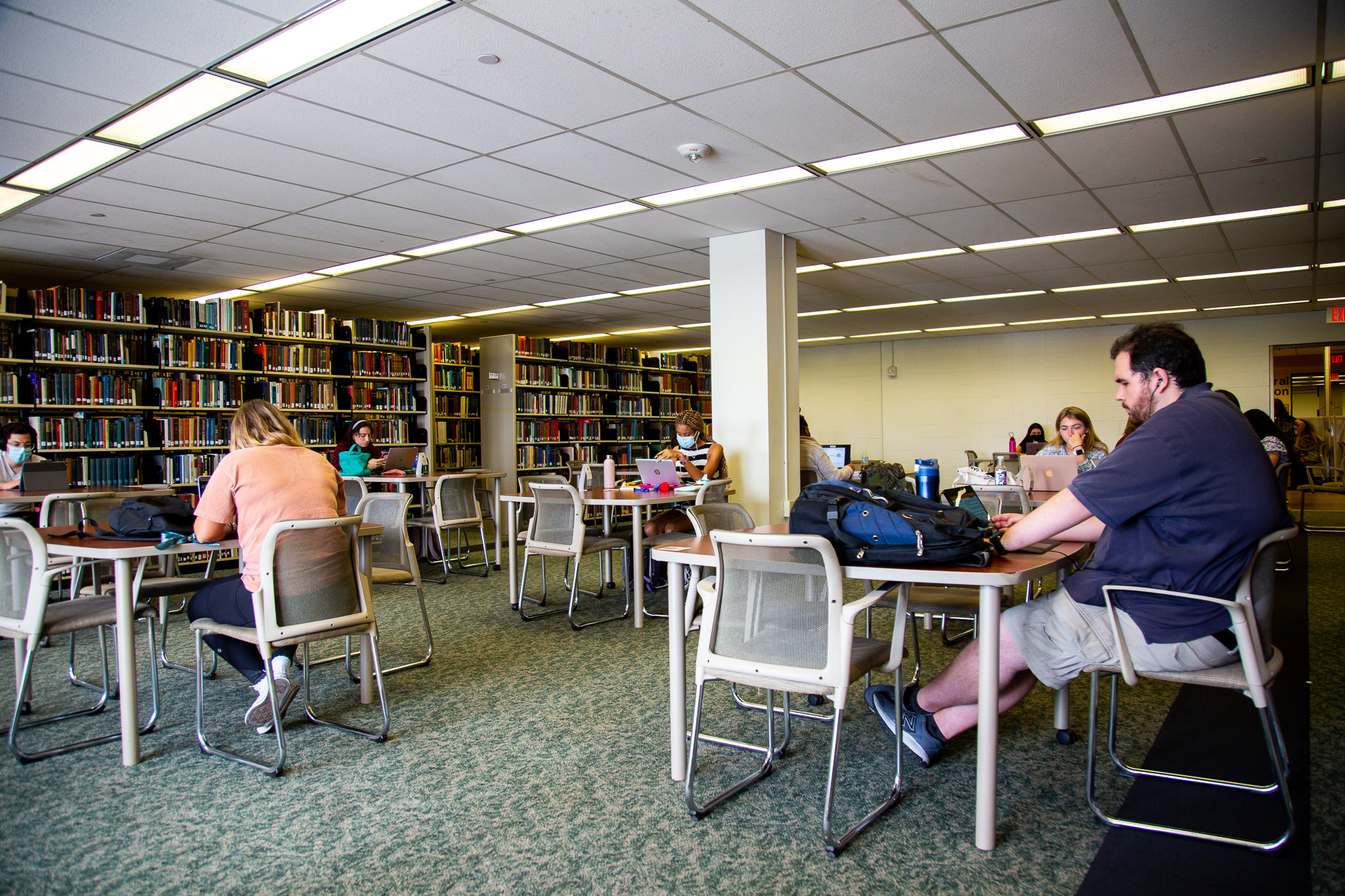COVID-19-caused burnout still lingers for some students

Even a year after returning to in-person learning, senior social work major Nya Menoze has found herself making less of an effort to build connections with professors and students.
Since she was able to work through her class content online all by herself, Menoze has no longer felt the need to talk to those around her for help. This differed from her freshman year when Menoze would make sure to attend office hours and talk with her classmates.
“I wasn’t even really engaged in the work itself. Then, if I wasn’t engaged in the work, I wasn’t engaged with the students,” Menoze said. “[Now], I’m just there to pass.”
The aftermath of over a year of online learning due to COVID-19 still lingers as some students continue to struggle acclimating to classroom learning and engagement.
The pandemic most commonly impacted mental health, motivation or focus, loneliness or isolation and academics, according to a 2021 study by the Penn State Center for Collegiate Mental Health.
Academics was reported to be the most impacted area by 66% of students, and another 67% reported it was motivation or focus.
What was most challenging for Anna-Jean Wilson, senior health sciences major, was the return to in-person classes. Wilson experienced major changes as she tried to get accustomed to in-person classes after being online for over a year.
“One of the things I’m nervous about in graduate school is being in person the entire time,” Wilson said. “I think fully jumping back in is a little intimidating.”
Wilson feels as though she’s lucky, however, as she was able to take part in more engaging courses than her fellow students.
“They really weren’t doing anything hands on for a very long time,” she said. “I was [lucky] to have the option to go and do something in person.”
With increased remote learning during the pandemic, students missed out on opportunities to connect with their peers. This represents another major hurdle for students coming back in person as they navigate traditional university life once again, according to Wilson.
“We’re human beings, we have to interact with each other,” she said. “It’s just weird, and you’re not face to face with people anymore.”
Menoze said her social skills diminished due to remote learning, which has impacted her engagement with classes. But it wasn’t just her. Wilson found that other students were also hesitant to make connections after such a long time of being online.
“We’ve missed so much socialization with one another,” she said. “Everyone just seems scared to talk to one another.”
Chloe Kirkland, senior communications major who transferred to USF when the pandemic began, said she was overwhelmed during the pandemic which she continues to experience now.
“It’s like nothing’s changed,” Kirkland said. “I’m teaching myself again. It still doesn’t feel like I’m fully back in college.”
Scott Solomon, director of the School of Interdisciplinary Global Studies, said many students were anxious to return to the traditional college experience, however, many students came back with no knowledge of study skills and time management.
“There’s a real diversity in student responses to the pandemic,” Solomon said. “There’s definitely a sense of burnout from all of the challenges that people face during the pandemic. It’s really hard to make a generalization about students because everybody’s experience was so different.”
Solomon has also noticed a lack of feeling of a community within USF, which he believes to be one of the biggest challenges for the university in the coming years.
“One of my greatest concerns is about regaining a sense of community when we’re doing so much work remotely and there’s been a lot of online teaching,” he said. “That difficulty around rebuilding the community. That’s one of the big hurdles that we have to figure out a way to overcome.”
To get through this burnout, Solomon encouraged students to take advantage of opportunities while still being self-compassionate. He said there are reasons why students are feeling unmotivated, which cannot be ignored.
“If you are feeling this burnout, those feelings are real. And you need to recognize that there are real reasons why people are feeling that,” Solomon said. “The amount of time people have for university in their life is a really special time in people’s lives. Try to make sure that you take advantage of every opportunity that presents itself to you.”






